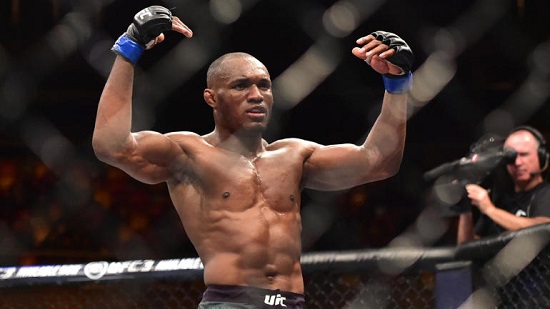This post has already been read 1311 times!
Nigeria has always had a history when it comes to combat sports. The towering legend of Dick Tiger was impossible to escape, Hogan ‘Kid’ Bassey held a featherweight title as far back as 1957, and in the last three decades the likes of David Izonritei, Ike Ibeabuchi and Samuel Peter have shaken up the heavyweight division.
Perhaps it is simply a case of Nigerians being able to channel their pent-up frustrations at the state of their home country through martial arts, and in that sense sport is simply a means of release. Be that as it may, Nigeria’s fighters are once again tasting glory and acclaim all over the world, flying the nation’s flag as they do so.
The Ultimate Fighting Championship (UFC) is a relatively new phenomenon, founded only some 25 years ago. The UFC is the biggest competition in the mixed-martial arts (MMA), where competitors combine boxing, kickboxing, jiu-jitsu, wrestling and other disciplines while fighting in an octagonal cage. Now firmly established in the mainstream, Nigerians have wasted no time asserting their presence within the octagonal ring.
He may be the first, but it certainly does not seem like he will be the last. Israel Adesanya, 29, recently caught the eye when he defeated UFC legend and longest reigning champion in the competition’s history Anderson Silva in February.
It was a highlight reel moment for the self-styled ‘Last Stylebender’, who could end up being a champion as well in the middleweight division. While mixed martial art is considered a little too violent by some of the Nigerian audience, boxing is a lot easier to relate to.
Anthony Joshua, the WBO, WBA and IBF heavyweight champion of the world, is the obvious standard bearer, and is undefeated in 22 professional fights, 21 of those coming by way of knockout. His heritage lies in the bustling city of Sagamu, two hours’ drive from Lagos. However, beyond him there is upcoming talent in the division in the form of Ughelli native Efe Ajagba.
The 24-year-old has been largely forgotten since he represented Nigeria at the 2016 Olympics in Rio. There, he was eliminated in the Quarterfinal by Ivan Dychko, a previous bronze medal winner in the superheavyweight category. He would attribute that defeat to his lack of a proper sparring partner in training, and alleged that his higher ranking had seen him favoured by the judges.
Believing he has stayed too long in the amateur ranks, in July 2017 he moved to the United States to turn professional. Since then, Ajagba’s growth and rise has been impossible to ignore: none of his nine professional fights to date has gone the distance, and eight of them have ended by way of knockout.
He has the potential, certainly, to be a top heavyweight contender in the future, and so far looks to be managed intelligently and at a steady pace. There are some doubts over the quality of his opposition, but it is important to note he is only 24 years old, and has a lot of time to step it up.
What he does have going for him are the fundamental tools: a good reach and length on his punches, as well as crushing power.
With just these tools, in today’s heavyweight landscape, can take a fighter very far, as is evidenced by current WBC champion Deontay Wilder, who is incidentally a part of the same Premier Boxing Champions (PBC) banner.
Larry Ekundayo, 36 years old is nicknamed the “Nigerian Beetle” and is the reigning European International Boxing Federation welterweight Champion. Fighting out of the United Kingdom, he has stated his desire to defend his title in Nigeria at some point in the near future.
The fortune of these fighters does prove the point that when given a good environment, Nigerians have the potential to be successful. They leave Nigeria, go out in the world to make a name for themselves, and then they become something altogether different, polished and refined in a way that was not apparent while they were here.
It is fortunate that these fighters still identify with the country: Usman walks to ring to the tunes of Afrobeats star Wizkid and legend Fela Anikulapo Kuti, and proudly brandishes Nigeria’s colours, while Joshua Africa tattoo etched with Nigeria and recent advertisement for telecommunication outfit Glo has drawn attention to his Nigerian heritage.
This might not always be the case. After all, the fact that they bear a Nigerian-sounding name does not mean a great deal in today’s increasingly borderless society. Rather, tt behoves Nigeria to do more.



